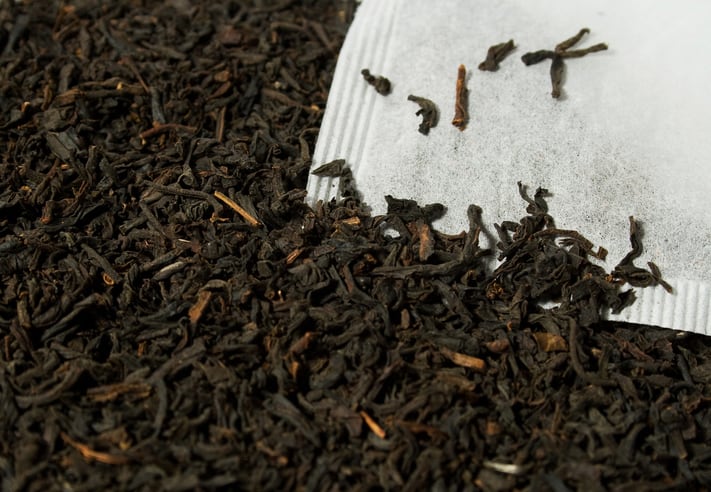Brits love tea. It’s an everyday staple, with 100 million cups of tea drunk in the UK every day.
But many don’t think further than the brew in front of them. In reality, it’s a complex supply chain of businesses that get a cup of tea to the table: from the growers to the brands and finally to the tea drinkers themselves.
And Fairtrade says not enough of that money is going back to the farmers. Only 7% of tea sold in the UK is on Fairtrade terms: which is ‘far too little’, says the organization (while new contracts should push this towards 10%, it’s still a small proportion of the tea sold in the country).
Why is this important? Tea is a crucial source of income and livelihoods in many countries, contributing to economic growth and food security. However, most workers picking tea on estates earn significantly below a ‘living wage’.
For example, in Assam (which produces half of India’s tea) the minimum wage for workers is 250 rupees a day (around £2.50/$3.22). A living wage would be around 450 rupees a day (£4.50/$6.04).
But besides that, tea workers face many challenges. Workers (who are usually women) must walk long distances and frequently carry up to 30kg of green leaf tea on steep terrain. Snakes, parasites and other hazards are common in many regions, and workers are not always equipped with the right protective kit on the fields or in factories.
And the issues go much further: women workers on estates have very few options if they experience violence or harassment, since the estate provides their housing.
The Fairtrade Foundation’s new campaign calls on the UK government to introduce new legislation, but it also wants to see brands and consumers support fairer tea.
“This is all about improving fair incomes and wages for the people who grow our tea,” Eleanor Harrison, chief executive, The Fairtrade Foundation, told us.
“We’re calling on tea drinkers to buy fair trade; and sign our petition calling for the government to make environmental and human rights and due diligence legislation. And we’re calling on the tea industry to engage in responsible business practices, and pay fair incomes and wages for their tea growers.”
The Fairtrade Foundation is calling on the UK government to:
- Introduce a UK law on human rights and environmental due diligence (HREDD)
This should be centered on the needs of overseas farmers and workers, and, importantly, the costs and burdens of compliance and proof of compliance should not be passed onto them. The focus should be on supporting living incomes and living wages. - Collaborate with businesses via multistakeholder interventions
A first step, says The Fairtrade Foundation, would be to convene a roundtable with all stakeholders, including senior government officials, businesses and representatives of tea workers and smallholder tea farmers, to discuss the challenges and find a way forward. - Honor the UK's International Climate Finance commitment to ensure aid and climate funds to support the people behind the tea and build resilience to climate change
That would mean immediately restoring the ODA budget to 0.5% of gross national income. Such funds would help the tea industry build resilience to climate change.
Now, says Harrison, is the time to drive change across the tea sector in Britain. The EU has regulations and directives which address human rights and workers: and the organization wants the UK to make the same effort.
“Frankly, it is not OK to turn a blind eye during this window of opportunity,” she added.
Driving change
The UK was the first country to adopt a National Action Plan on Business and Human Rights and to introduce a Modern Slavery Act (2015).
As a member of the Organisation for Economic Co-operation and Development (OECD), it promotes awareness of the OECD Guidelines for Multinational Enterprises, and, as a member of the International Labour Organization, respects the ILO’s Fundamental Principles and Rights at Work.
However, Fairtrade says that there are shortfalls in these commitments (it is the most vulnerable people which risk falling through the cracks of the legislation).
As part of its campaign, it’s released a report into the tea sector which highlights what needs to be done.
“The UK government must adopt a comprehensive approach to business regulation that encompasses all human rights abuses and environmental harms, and incorporates the perspectives and experiences of a wide range of stakeholders, including trade unions and marginalised groups such as casual workers and women workers,” says the report.
“However, this legislation must not put the burden onto growers, workers, estates and farms: adding to their costs and increasing their risks.”
To that end, Fairtrade wants to see companies obliged to take on the responsibility to meet and prove compliance.
And it wants new legislation to focus on closing the gap to living incomes and living wages for farmers and workers in the tea sector: calling time on unfair purchasing practices, pricing structures and business models with hold back progress.
That also includes transparency: with companies publishing reporting on their sourcing and buying practices.
The UK public can support the campaign by signing the petition.



